A history of the microcomputer industry in 300 adverts
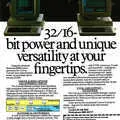
Corvus
March 1983
32/16-bit power and unique versatility at your fingertips
The Corvus Concept was one of several 32/16-bit machines appearing at the time, like the Fortune 32:16 or Sage II, in an era when 16-bit machines were only really getting going and 8-bit home computers...
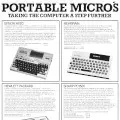
Transam
March 1983
Portable micros - taking the computer a step further
This is one of a few adverts that appeared around about the same time which could be read as something of a sad coda on the life of Transam Microsystems Limited. Transam had started out as Transam Components,...
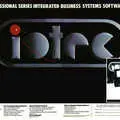
Iotec
March 1983
Our professional-series integrated business systems software is free
Winner of the award for most puzzling advertising campaign must surely go to Iotec, which for the best part of a year seemed to feature adverts all in black with just the word "iotec" on them, or with...
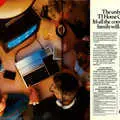
Texas Instruments
October 1983
The unbeatable TI home computer. It's all the computers your family will ever need
TI's pushing of Commodore out of the calculator market in the 1970s had come back to haunt it in 1983 - the year of this advert. When TI, which had been manufacturing the calculator parts that many...
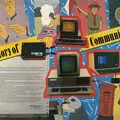
Torch
October 1983
A history of communications: part 1
This colourful and quintessentially 80s advert from Torch was one of two sequential adverts in PCW and provides a nice summary of the company's output so far. This includes the original Communicator...
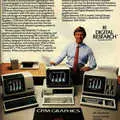
Digital Research
February 1983
CP/M Graphics - your ticket to success
Intergalactic Digital Research was founded by Gary Kildall, along with his wife Dorothy Kildall, in 1976, three years after Kildall first wrote CP/M - the first-ever disk operating system for a microcomputer....

Globe Business Machines
April 1983
If you want to help with research, buy someone else's computer
At almost the anatomically complete-opposite end of the scale to Commodore's Maureen the Elephant comes this advert featuring cute guinea pigs, from little-known Globe Business Machines Ltd, which seems...
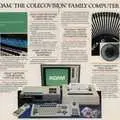
Coleco
December 1983
Meet Adam: the Colecovision family computer system
Coleco's Adam was announced in a "blaze of publicity" during the summer of 1983 and appeared to be a major breakthrough in price, with POCW suggesting that it provided a system comparable to machines...
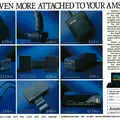
Amstrad
September 1985
Get even more attached to your Amstrad
Many computer companies of the time seemed to be happy to rely on third parties to produce peripherals for their machines, particularly Acorn which was famous for its long timescales in developing anything...
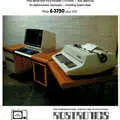
Micromation
January 1980
Micromation Z-Plus Microcomputer System
On the one hand, the Z-Plus Microcomputer System was a fairly standard computer of the day, with a Zilog Z80 CPU, 64K of memory, S-100 bus, Digital Research's CP/M and Microsoft BASIC. On the other hand...
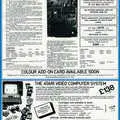
Compukit
January 1980
Compukit UK101 - Low-cost Superboard in kit form
The Compukit UK101 was effectively an unauthorised UK clone of Ohio Scientific's Superboard - the one-board computer that, via the updated version the Superboard II, gave rise to Ohio's fridge-sized machines...

Dataindustrier/Luxor
June 1980
ABC 80 - The new powerful personal computer from Sweden
It would be easy to think of the personal computer revolution as being a purely US and UK thing, although these were by far the largest and most active markets. There were, however, home-grown computers...
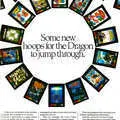
Dragon Data
November 1983
Some new hoops for the Dragon to jump through
This advert for Dragon software comes at a time when the company was going through yet another financial crises, which this time involved an additional investor injection of £2.5 million, triggered by...
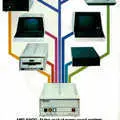
Midwest Scientific Instruments (MSI)
June 1979
MSI 6800 - At the root of every good system
The MSI 6800, from Midwest Scientific Instruments, was a Motorola MC6800-based system running at 2MHz on SWTPC's SS-50 bus. It was first launched in 1977. The MC6800 could nominally support 64K of memory,...
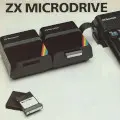
Sinclair
November 1983
ZX Microdrive - Now on release
Sounding something like a statement on the fate of a serial murderer from a top-security prison, this advert, which was part of one of Sinclair's regular "mini magazines" within the magazine they were...